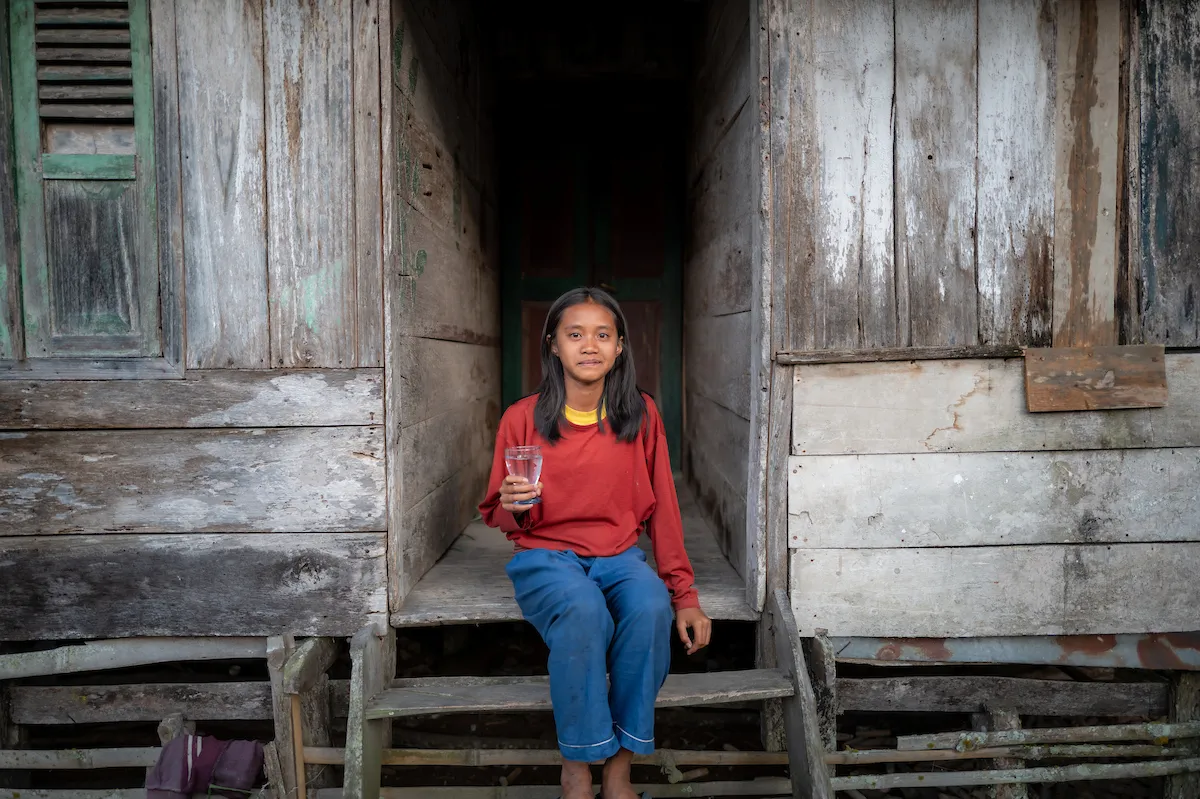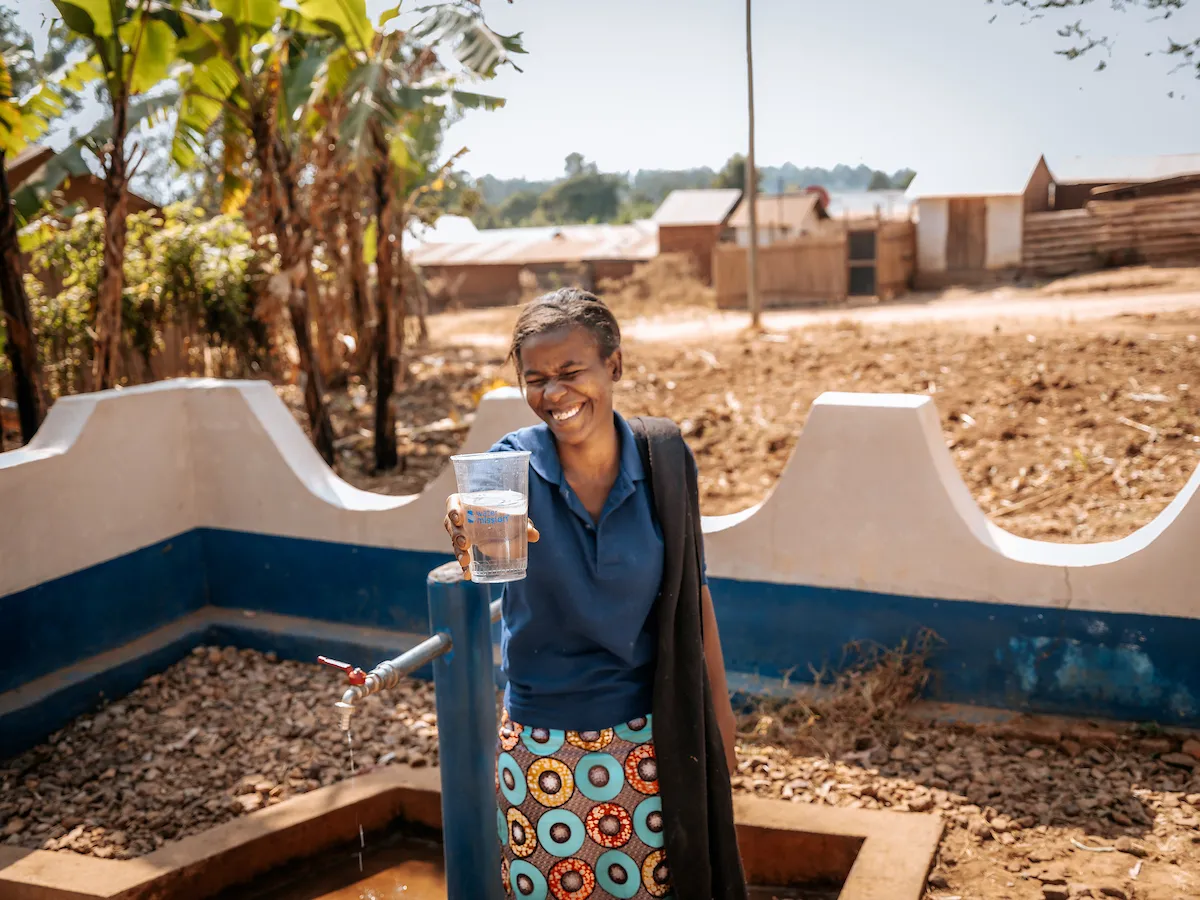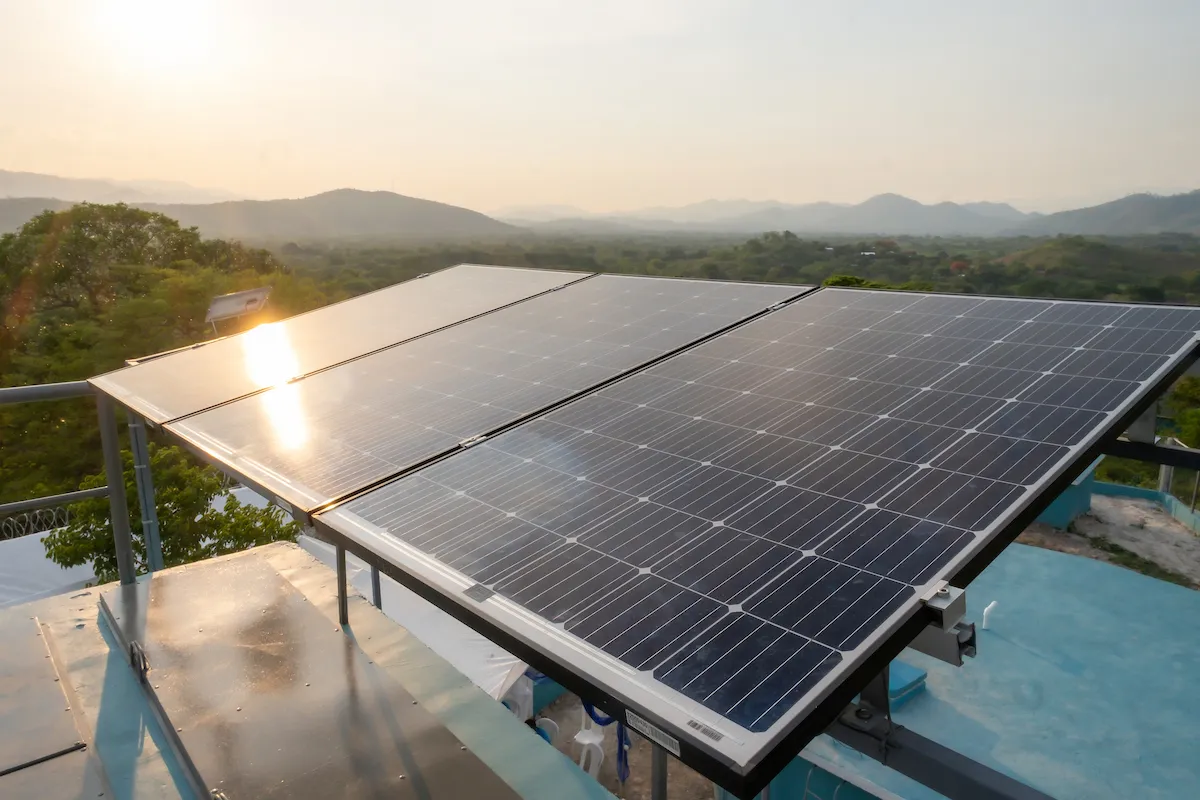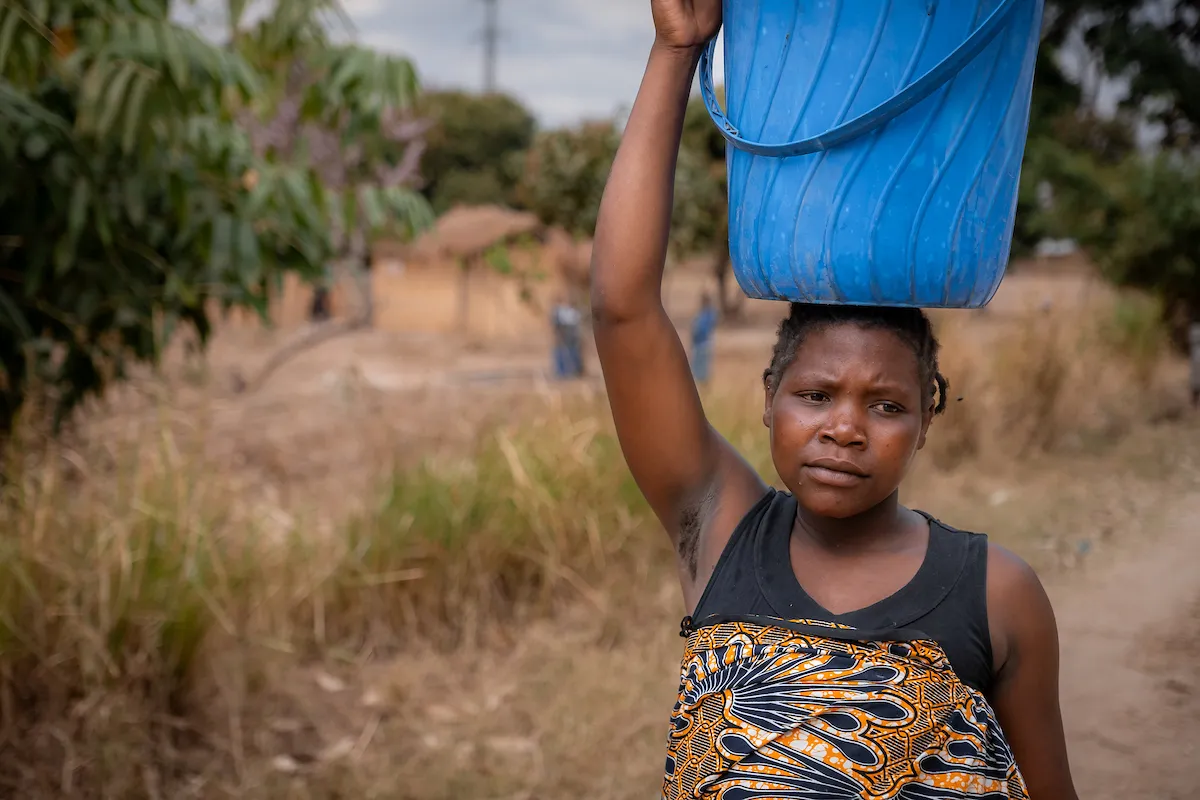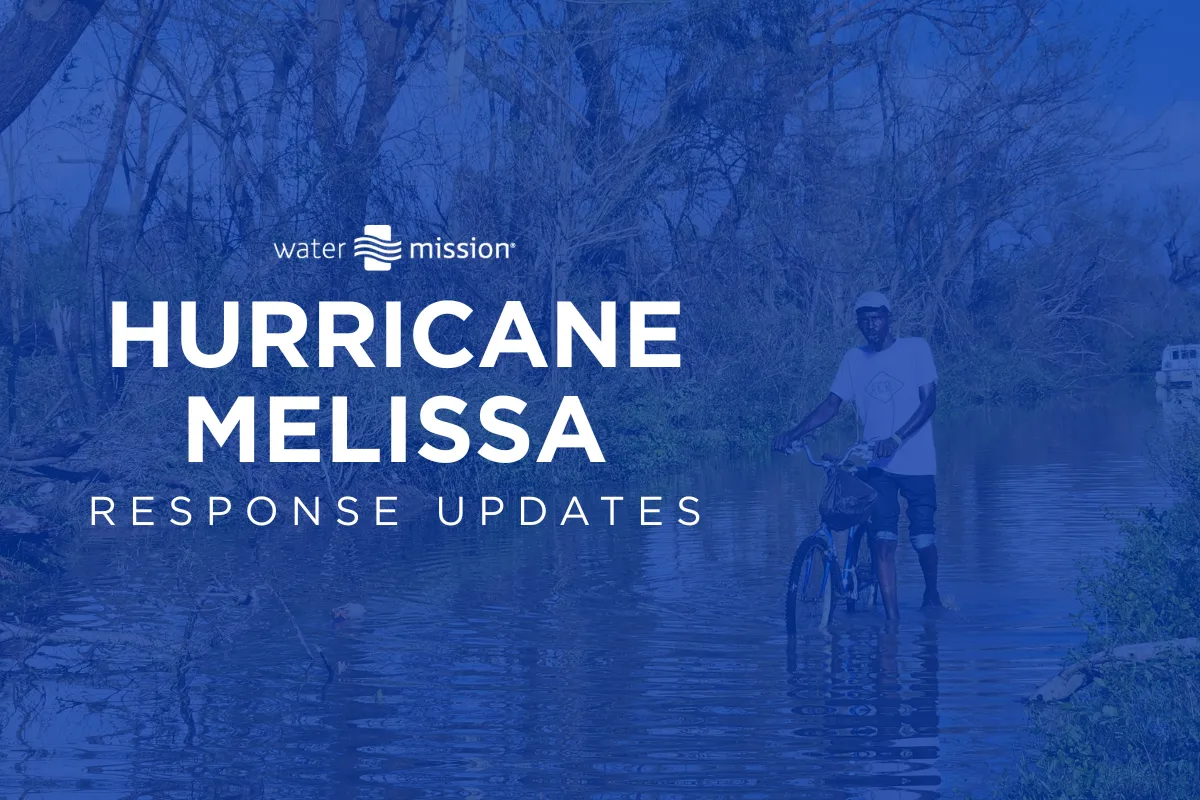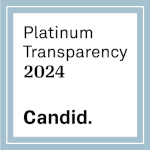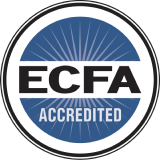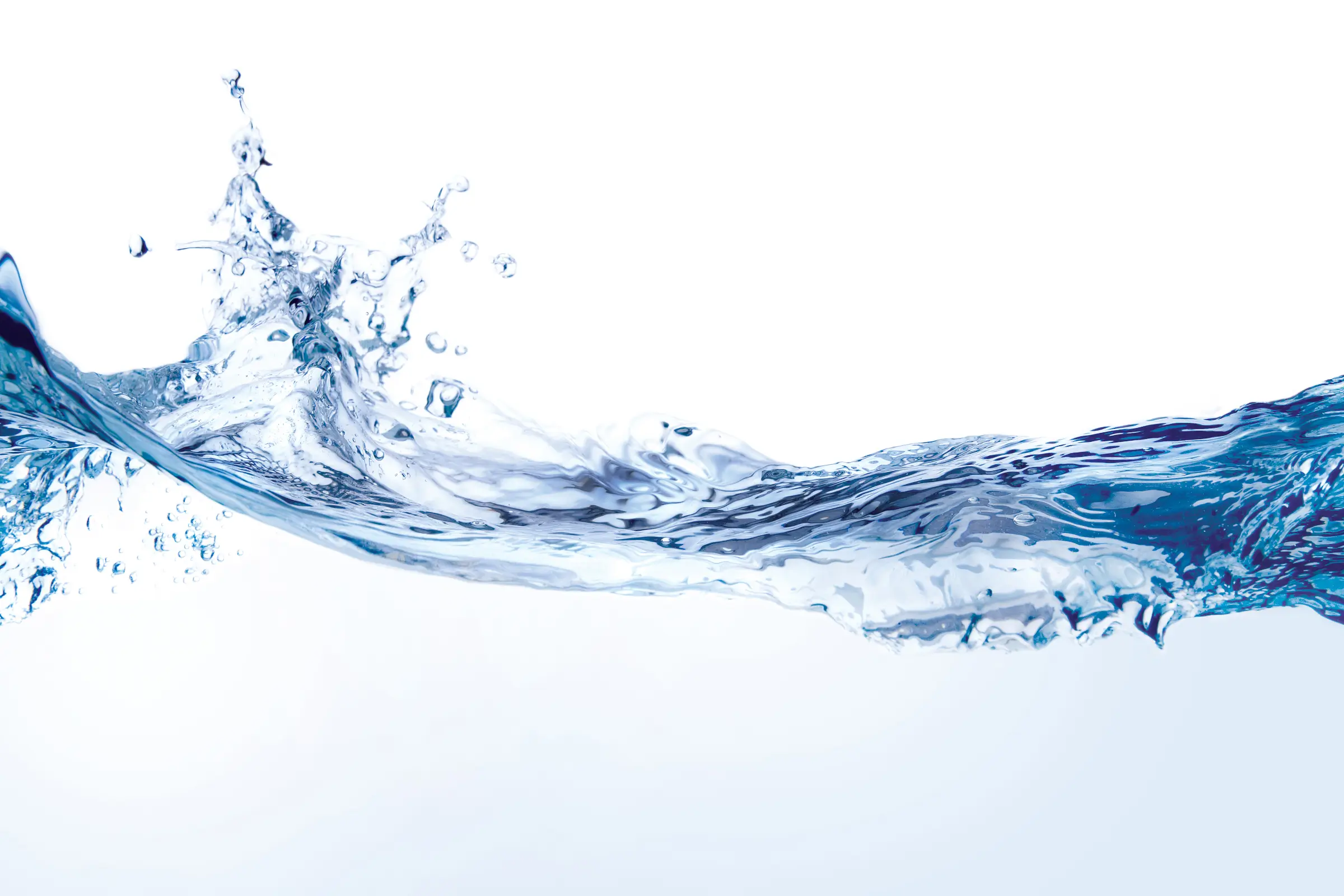Back to School: Kitale School in Kenya
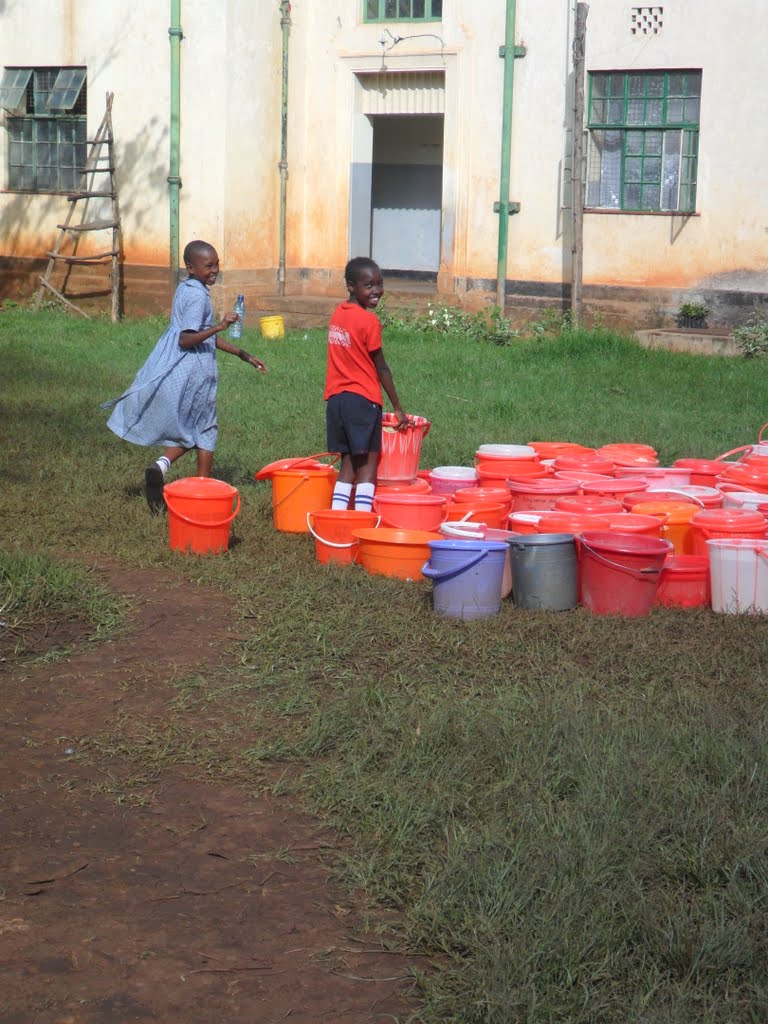 Students at Kitale School prepare to carry buckets of water to their dormitories.
These are not the words you’d expect to hear from a typical school boy, but the children of Kitale School in Kenya knew even before they had safe water that access to it as well as good health and hygiene practices promised a better future. While there were two boreholes for water in the community, it was untreated and contaminated with waterborne bacteria. During the dry season, water would become scarce as less and less came out of the borehole, sometimes forcing students to resort to drinking water from the school swimming pool.
The water problems faced by the students of Kitale hindered their ability to get the education they desired. “I’m studying to become a pilot and I know I will manage it,” one student, Richard, explained with a smile. But his positive attitude faded as he described the health issues he and his fellow students faced. “In our school we have had students suffer from dysentery and amoebiosis. We struggle for water because there are so many students. Some of the toilets are also closed because of they lack enough water.”
Students at Kitale School prepare to carry buckets of water to their dormitories.
These are not the words you’d expect to hear from a typical school boy, but the children of Kitale School in Kenya knew even before they had safe water that access to it as well as good health and hygiene practices promised a better future. While there were two boreholes for water in the community, it was untreated and contaminated with waterborne bacteria. During the dry season, water would become scarce as less and less came out of the borehole, sometimes forcing students to resort to drinking water from the school swimming pool.
The water problems faced by the students of Kitale hindered their ability to get the education they desired. “I’m studying to become a pilot and I know I will manage it,” one student, Richard, explained with a smile. But his positive attitude faded as he described the health issues he and his fellow students faced. “In our school we have had students suffer from dysentery and amoebiosis. We struggle for water because there are so many students. Some of the toilets are also closed because of they lack enough water.”
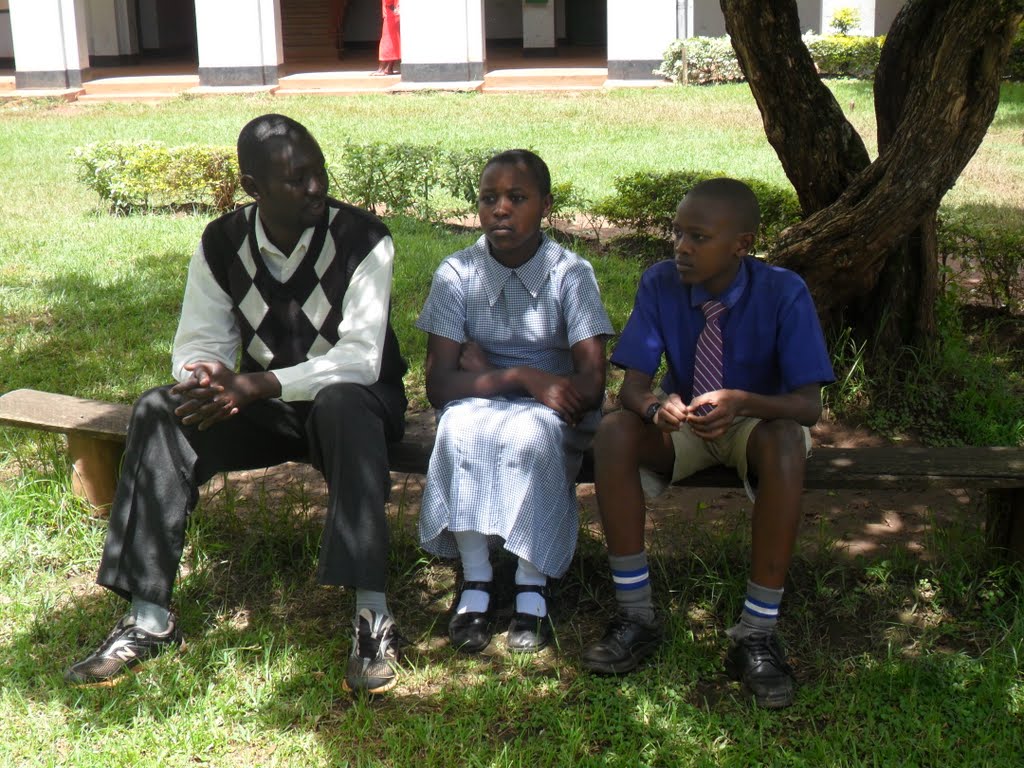 While assessing the school, Water Missions Internal staff members asked students to describe the day-to-day reality lack of safe water brings.
As is often the case, the lack of safe water and good hygiene practices kept more girls from class than boys. Wamboi, a young girl, explained, “We came here to excel. To us who are boarders in the school, when there is no water, as girls, we feel uncomfortable [because of poor hygiene] and sometimes we avoid classes.”
When Water Missions International approached the school about the possibility of a safe water solution, the students and staff were overjoyed at the chance for safe water. With the help of the fundraising efforts of churches and private donors, Water Missions International designed and installed a safe water solution specifically for Kitale School, and arranged classes to teach proper health and hygiene practices.
While assessing the school, Water Missions Internal staff members asked students to describe the day-to-day reality lack of safe water brings.
As is often the case, the lack of safe water and good hygiene practices kept more girls from class than boys. Wamboi, a young girl, explained, “We came here to excel. To us who are boarders in the school, when there is no water, as girls, we feel uncomfortable [because of poor hygiene] and sometimes we avoid classes.”
When Water Missions International approached the school about the possibility of a safe water solution, the students and staff were overjoyed at the chance for safe water. With the help of the fundraising efforts of churches and private donors, Water Missions International designed and installed a safe water solution specifically for Kitale School, and arranged classes to teach proper health and hygiene practices.
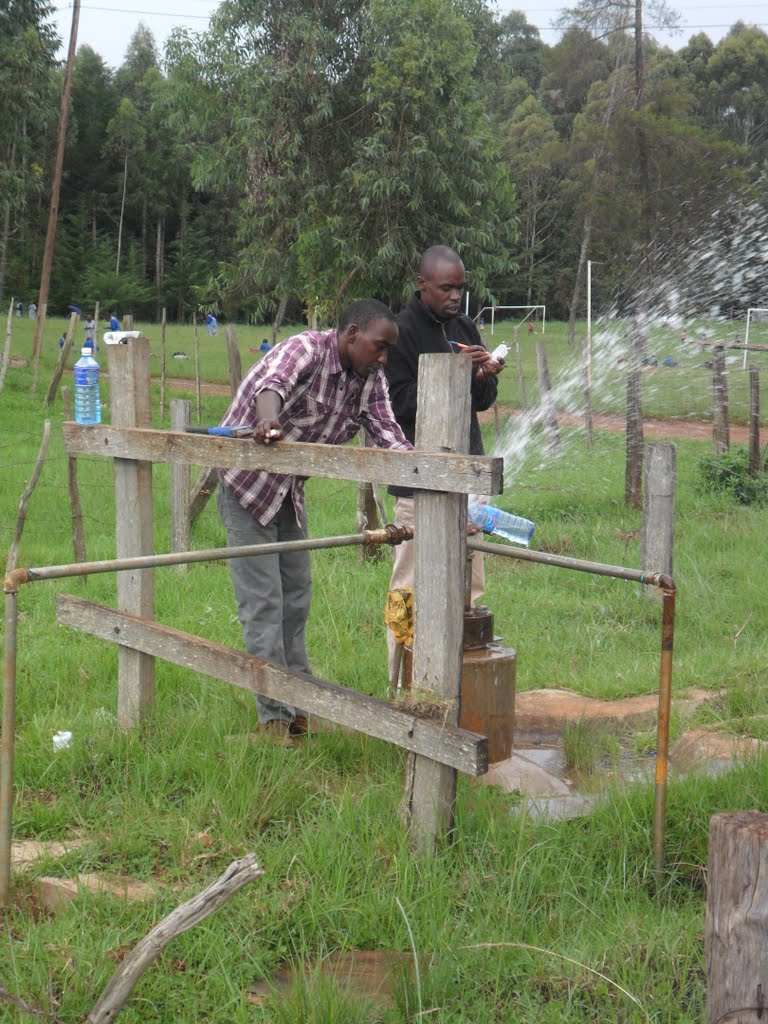 Staff from Water Missions International Kenya test the school’s borehole for contaminants.
Now the students of Kitale don’t have to miss class because of poor hygiene or water-related illness. The school nurse could not contain her joy over the impact the system has had on the students’ health. “Ever since the water project was completed, the number of diarrhea cases has really gone down,” she explained. “Initially, I would not miss a trip to the district hospital with about four girls in every trip, but now I don’t need to make any trips to the hospital because the incidences of sickness have gone down. Typhoid, for instance, has gone down from 22 cases last term to only two this term. If you were to check my stock of drugs, you would be surprised to see that typhoid and amoebiasis drugs are the ones in plenty and it is not because I ordered excess of it, but because the consumption of these drugs has significantly gone down.
I thank God for WMI because were it not for the safe water project, I would not be having these 15 minutes I have shared with you; I would have sent you out to tend to a queue of girls whose symptoms were similar: diarrhea, fever, and stomach ache. I rarely had time to take a meal once I [was at work] but I thank God it for it is now a thing of the past.”
Staff from Water Missions International Kenya test the school’s borehole for contaminants.
Now the students of Kitale don’t have to miss class because of poor hygiene or water-related illness. The school nurse could not contain her joy over the impact the system has had on the students’ health. “Ever since the water project was completed, the number of diarrhea cases has really gone down,” she explained. “Initially, I would not miss a trip to the district hospital with about four girls in every trip, but now I don’t need to make any trips to the hospital because the incidences of sickness have gone down. Typhoid, for instance, has gone down from 22 cases last term to only two this term. If you were to check my stock of drugs, you would be surprised to see that typhoid and amoebiasis drugs are the ones in plenty and it is not because I ordered excess of it, but because the consumption of these drugs has significantly gone down.
I thank God for WMI because were it not for the safe water project, I would not be having these 15 minutes I have shared with you; I would have sent you out to tend to a queue of girls whose symptoms were similar: diarrhea, fever, and stomach ache. I rarely had time to take a meal once I [was at work] but I thank God it for it is now a thing of the past.”
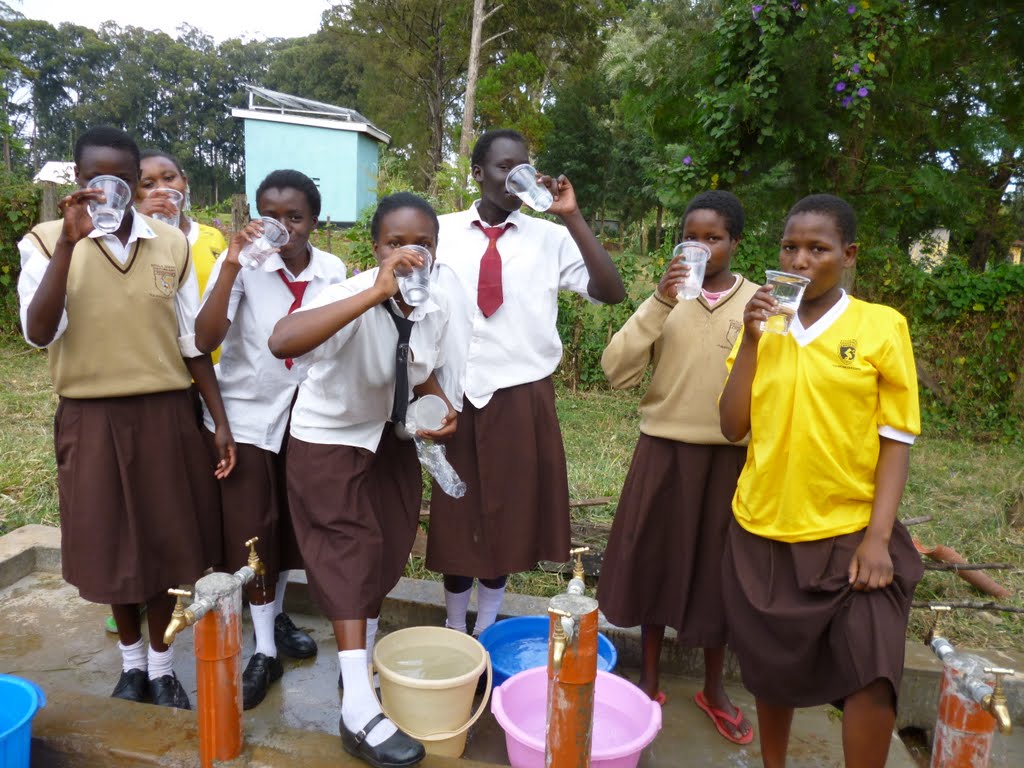 The students were eager to try their new safe water when the project was installed.
Often, safe water frees up finances for families who no longer have to spend savings on costly medical treatments. The Principal of Kitale School commented that she’d seen similar savings, explaining, “The school has saved a lot on medical expenses because the number of trips to Kitale District Hospital to treat our students for typhoid, amoeba, and dysentery has reduced tremendously. Financially, the school has saved greatly since previously we would pay a water bill of up to Kshs. 100,000 (about $1,144.20 USD) to [the water company]. Nowadays, we do not have a water bill! We only pay Kshs. 10,000 (about $144.20 USK) towards electricity used to pump water. This is a 90% reduction of cost!” Now money saved from medical treatments and water bills can go towards improving the school and the lives of the students.
Life used to be very different at Kitale School. Once, students missed class because of diseases caught from drinking contaminated water and from poor hygiene. Now students are free to study more in pursuit of their dreams, whether it’s to be a pilot like Richard or to be a part of a generation working to improve the lives of others in their country.
The students were eager to try their new safe water when the project was installed.
Often, safe water frees up finances for families who no longer have to spend savings on costly medical treatments. The Principal of Kitale School commented that she’d seen similar savings, explaining, “The school has saved a lot on medical expenses because the number of trips to Kitale District Hospital to treat our students for typhoid, amoeba, and dysentery has reduced tremendously. Financially, the school has saved greatly since previously we would pay a water bill of up to Kshs. 100,000 (about $1,144.20 USD) to [the water company]. Nowadays, we do not have a water bill! We only pay Kshs. 10,000 (about $144.20 USK) towards electricity used to pump water. This is a 90% reduction of cost!” Now money saved from medical treatments and water bills can go towards improving the school and the lives of the students.
Life used to be very different at Kitale School. Once, students missed class because of diseases caught from drinking contaminated water and from poor hygiene. Now students are free to study more in pursuit of their dreams, whether it’s to be a pilot like Richard or to be a part of a generation working to improve the lives of others in their country.
Related Impact Stories
